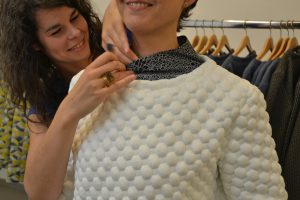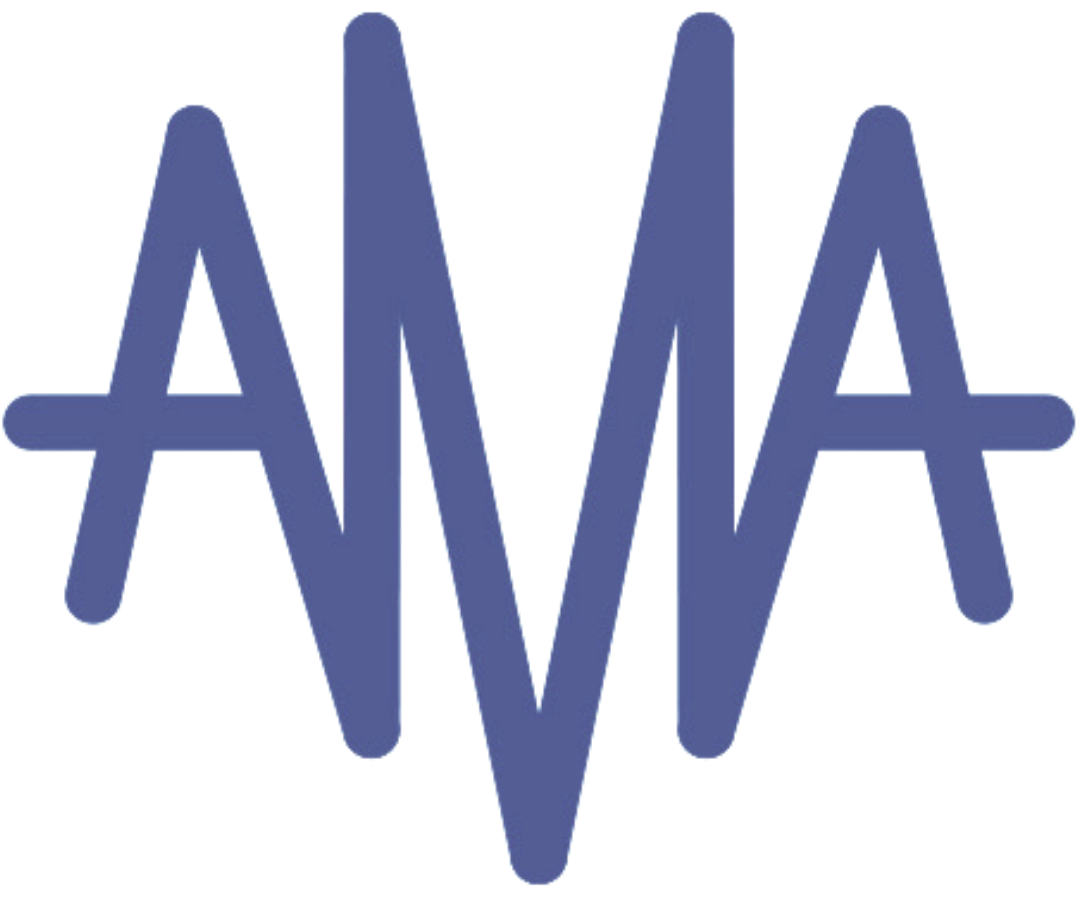
An alternative business model for the fashion industry
It is a cliché but nonetheless true: the story of a start-up is one of trial and error. For Studio AMA nothing could be further from the truth. My goal: to make the fashion industry more ethical. In order to achieve this, I use an alternative business model with my label, where one threshold is a little higher than the other. And that slows down the process. Like today. I tell you what's going on. But let's start at the beginning.
As is the case for more starting entrepreneurs, the idea for Studio AMA was born from the conviction that there is room for improvement. In the shift to more conscious consumerism, I noticed that the fashion industry was behind. As I was convinced that alternative models were also possible in my sector, I started Studio AMA. The designer in me as a basis and my ecological convictions as a driving force.
And it turned out great! In the meantime, I put my second series on the market. It was well received, just like the first. I use social media to share my alternative fashion. I pass on my knowledge through workshops and lectures. My audience is excited. I even more so.
Material and possibilities determine the design
But all of this is preceded by a whole process. Because I want to be critical. It is not enough to sew a label to a piece because its material is durable. I strive for transparency at every step of the process. Not from design to material, but vice versa: from material to design. Because the material determines the design.
I don't have fabrics produced for my series, but I start from residual material: residues from the local textile industry that are destined for the waste mountain. I explore its possibilities and adapt my prototype accordingly. For example, the material in the §2.series is a mattress cover. The soft material and the cool prints lent themselves to a sweater. And there you go!
That is to say, that's when it all starts. After a certain quantity, it was no longer possible to produce in our own studio. For the production of my series, I therefore work together with sheltered workshops. I already wrote an article about the social aspects of Studio AMA on my website. Here, too, I choose to work with local organisations, thus completing the short chain immediately.
SLOW fashion
Previous collaborations with textile manufacturers and sheltered workshops went particularly smoothly. But this is preceded by a complex process of persuasion and that is where the problem lies. There, the process is slowing down.
On the one hand there are the textile manufacturersUndoubtedly with residual flows. But often these waste flows are already diverted to another destination. They might be reworked into insulation material. Of course, that's better than irrevocably ending up on the waste heap. However, I see this more as a downgrade of the material: the residual flows go back to a factory, to be processed, which means a second (or third, or fourth...) time emission.
I believe I can upgrade the material by incorporating it into my collections. I start from the existing properties of the material and adapt the design so that each element shines through. The fabrics are not processed or reworked. They are what they are.
On the other hand there are the sheltered workshops. Because a prototype must of course be in production. In that phase of the chain, I also want to examine how things can be done as ethically as possible, by focusing on social innovation. This is why I work together with sheltered workshops.
Small groups of employees with a distance to the labour market are working with a supervisor. The activities are adapted to the possibilities of the employees. This is where the challenge lies, because the products are often no more complex than a cherry stone pillow or a cover. But thanks to close cooperation , mutual assessment is perfectly possible. This is reflected in a very interesting interaction. A learning process of searching, adapting and fine-tuning, both for them and for me.
A challenging and slow process
I had the best experiences with both types of partners. But building trust takes time. Fortunately, time has the great advantage that one always gets new ones. And I want to make use of that. The process is slow and there is nothing wrong with that. I want to take the time to convince organisations how useful it is to use residual flows in a new way. I don't mind to tell you my story a hundred more times.
But I also realise that existing rituals are difficult to disrupt. On the other hand, I do see a shift in the awareness of the sector's major players. They feel the added value of socially responsible entrepreneurship. They know that they have to shoulder their responsibilities. And they want to give something back.
With Studio AMA I offer them an answer. I want to be a sparring partner, investigate the possibilities of residual flows, explore the capacities of sheltered workshops and get it all to the consumer.
That's why I am making an appeal. Do you know an organisation that fits within my alternative business model? Textile manufacturers and sheltered workshops near Ghent are the subjects of my quest. I am also looking for opportunities for short chain sales. Maybe you are part of this yourself? Leave your contact details or send me a message. Because I am very curious about what we can do for each other's ethical stories.

